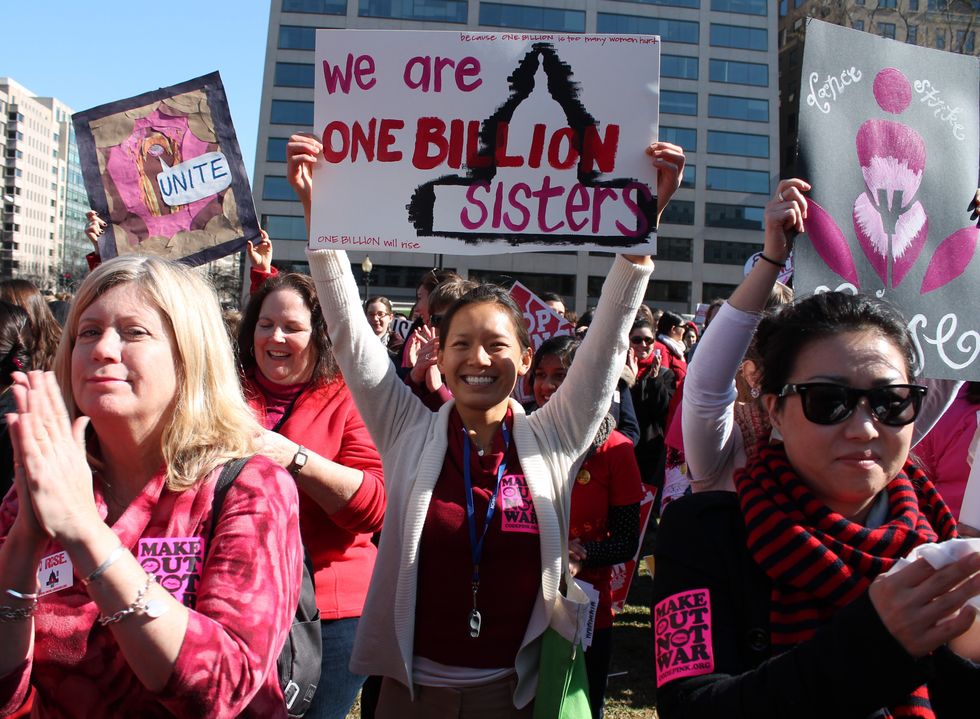From the moment a child's gender is discovered, it is automatically categorized into a color-coded system of separation. Everything from blankets to binkies are separated into the stark classifications of "pink" or "blue."
However, baby girls get to receive a special pink gift straight from the womb that their male counterparts do not: gender-based consumer oppression known as the Pink Tax.
In its simplest terms, the Pink Tax is a nickname given to the extra money women are unknowingly forced to pay for products and services. The effects of this economic disparagement latches onto females in their infancy, subliminally instilling in them that they are unequal to their male playmates.
In the New York City Department of Consumer Affairs' examination of these discrepancies, six categories of toys including backpacks and preschool toys essential to a child's early education were found to cost anywhere from $1 – $5 more than the male equivalent.
Girls' clothes succumb to a similar fate.
Shirts and clothing targeted towards young girls and babies sell for around $3.00 more than clothing for boys, despite being generally designed in the same way. The Pink Tax puts parents in an impossible position of having to limit their daughter's clothing and toys because the higher prices simply add up.
In the same NYC DCA report titled "From Cradle to Cane," it was discovered that toys today are more gendered than they were in the 1950s, the peak historical period of sexism. This separation allows the opportunity for price variations to easily exist, going undetected to oblivious consumers. The "blue" toy option is often more cognitively developmental and cheaper while the "pink" version of the same toy has fewer, flimsier pieces costing anywhere from $2–20 more.
As young girls grow into women, the Pink Tax becomes even more oppressive.
In "Pink Tax is the Wrong Tax" published by the Coppell Student Media, it was estimated that women, on average, pay "gender taxes" of about $1,351 per year, totaling $72,954 over the course of a lifetime. With the lifespan of women averaging almost five years more than men, we are expected to pay more, earn less and live longer — an unequal equation.
This tyrannical tax is most jaw-dropping in these categories: razors, shampoo and hair care products, everyday services such as dry cleaning and haircuts, and feminine hygiene products.
In her Business Insider article "30 Items That Prove Women Pay More," Mallory Schlossberg cites a 48% difference in shampoos, a 15% difference in clothing and an 11% difference in lotion. The Pink Tax can even be found within the medical field and senior citizen care, with support braces and medications being up to 15% more expensive if the patient is female.
The Pink Tax being applied to crucial medications and medical equipment is not just a gender inequity but a crime against all women in need of medical assistance in the money mongering market economy.
Competing with the inequity perpetrated upon older women is that foisted on menstruating women. To the androcentric market, pads and tampons are considered luxury items. Of course, these products are luxurious, as every woman who has ever had the utter pleasure of painfully menstruating once a month would agree. All joking aside, though, the biological function of menstruation is one that cannot be shut on and off at will.
In her article "The Pink Tax- The Cost of Being a Female," Candice Elliot explains that the market is shamefully capitalizing on the necessity for menstrual products, charging women anywhere from $4 more than monetarily required for a profit. With girls reaching puberty at younger ages and the rising prices of feminine products, it is estimated that a woman will spend a total of $3,000 in her lifetime on such products.
What takes this tax to even further heights is the fact that it is not just a "first world problem."
This pocket gouging practice is prevalent in emerging economies like North Africa where school girls miss vital days of school because they don't have enough money to pay for feminine products. Because of the money-hungry patriarchal force in the market economy, girls are now being put at not only an economic disadvantage but an educational one as well.
From womb to tomb, women across the world are plagued with the ludicrous Pink Tax. Whether it be on clothing, toys, feminine products or medications, women fall victim to transaction tyranny.
Not only does the Pink Tax set women back thousands of dollars a year on retail items, but it teaches girls from a young age that they are nothing more than cash cows for the market economy.
The only way we can truly attain the equality we deserve is if we educate ourselves on the horrors of such consumer incongruity. It is time for consumers to come together to form an economical "coup" against the market economy in the hopes of a global end to the patriarchal force that is the Pink Tax.






 StableDiffusion
StableDiffusion StableDiffusion
StableDiffusion StableDiffusion
StableDiffusion Photo by
Photo by  Photo by
Photo by  Photo by
Photo by 
 Photo by
Photo by  Photo by
Photo by  Photo by
Photo by  Photo by
Photo by  Photo by
Photo by 











